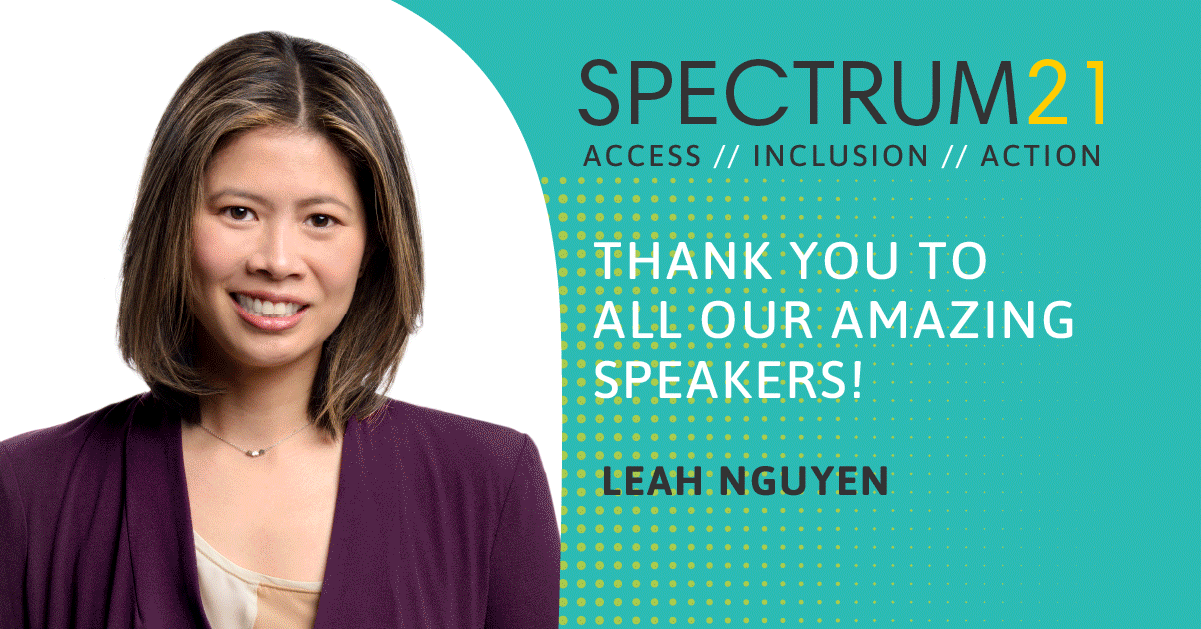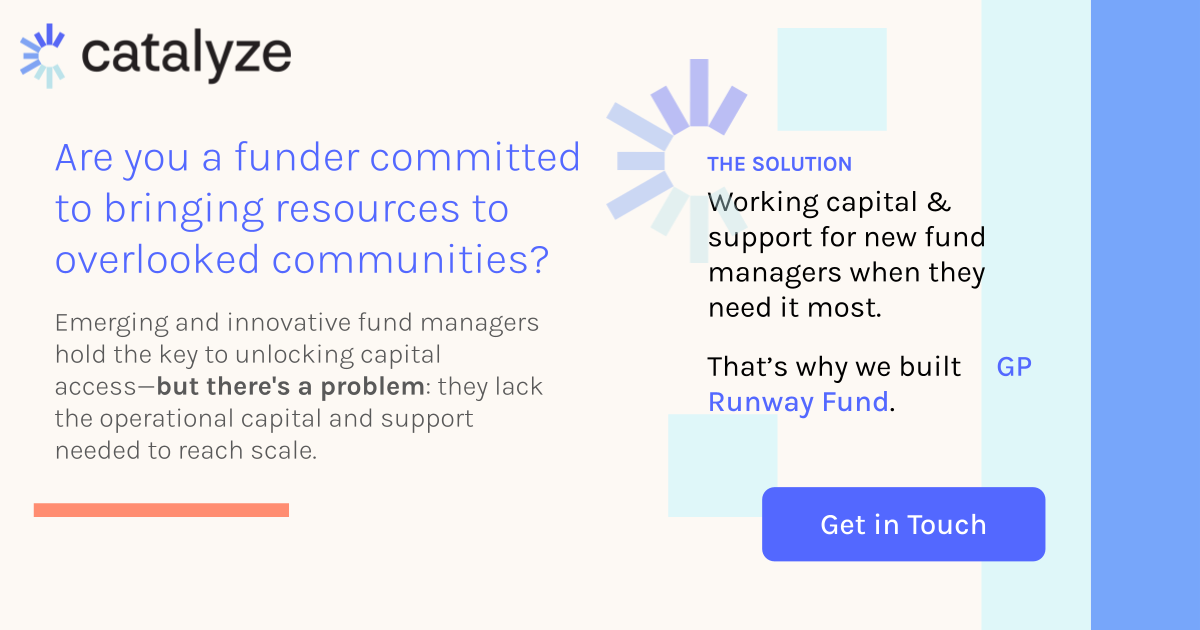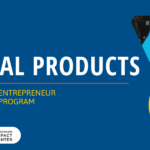Lessons to Carry Forward, from Speakers and Attendees
“Right now is not about incremental change. We need revolutionary change … to move capital toward justice.” — Monique Aiken, host of The Reconstruction podcast, at SPECTRUM21
We will carry this message, and many more, forward from our SPECTRUM21 June event into our sustained action and collective work. During the two-day convening, speakers and participants alike shared challenges and identified needed action for us to effectively move capital toward justice. We have captured many of those ideas in a Miro board to explore (the board is also shown below):
We’ve also compiled questions to ask, first steps to take, and other calls to action and thought-provoking ideas shared throughout the event below. You can click to watch the full session recording to learn more about these leaders and their projects, as well as their ideas for us to truly build an equitable economy — starting by completely reimagining our economy, our tools and our existing structures.
Investing in Impact and Opportunity: Cleveland Avenue and the MacArthur Foundation
John Palfrey, President of the John D. and Catherine T. MacArthur Foundation, joins in conversation with Don and Liz Thompson, founders of Cleveland Avenue and the Cleveland Avenue Foundation for Education Group about advancing racial equity, education, and economic opportunity. MacArthur and the Thompsons are partnering through impact investing in the CAST US fund to help accelerate the success of diverse entrepreneurs in the Chicago region. Two takeaways from their conversation:
Liz Thompson: “Make sure that what you are funding has long-term and lasting impact for the stakeholders that you most want to impact … Take stock of what you have access to—What are your gifts? What are your resources? What are you able to deploy?—And make sure you’re working in collaboration with those who are closest to the solutions in order to have the deepest most lasting impact.”
Don Thompson: “We wanted to basically shoot a hole in the middle of ‘we can’t find the talent that’s Black, or brown, or women.’ … Many people think it is all about the capital. It’s not all about the capital; it really is about access and support.”
Building a More Equitable Economy Through Community Investment
Fran Seegull, President of the US Impact Investing Alliance, discusses the USIIA’s new report “Impact in Place: Emerging Sources of Community Investment Capital and Strategies to Direct it at Scale.”’ Commissioned by the Federal Reserve Bank of New York as they considered how to rebuild a more equitable economy post-pandemic, the report aims to both provide an overview of the current state of community investing and spark discussion about what it could look like in the future. As Fran shared:
“Communities need much more from us as investors. There’s a dire need for more risk capital in the market, for example, to shore up the capital structure for community lenders. There’s also a need for better understanding by investors and their wealth advisers on how to invest in the economic success of neighborhoods — rural, tribal, and urban alike.”
Helping Minority-Led Small Businesses with Limited Access to Capital
How can we build back better? During this fireside chat, Daryl Shore of Prudential Financial and Victor Salama of Greater Newark Enterprises Corporation (GNEC) discuss how their organizations have shifted their strategies to meet the needs of the minority-led businesses disproportionately impacted by the pandemic. Two takeaways from this session:
Daryl Shore: “As we think about how we create a thriving city, it’s really about creating thriving neighborhoods. We know how important small businesses are … we know they help address the wealth gap … and are really the engine for growth in this country.”
Victor Salama: “We see also the fact that capital allows businesses to create very important alliances in communities. … You can’t be an expert in everything, so you’re looking into the community to find a strategic partnership that can elevate you. Working capital allows you to build your inventory; it allows you to think, it allows you to strategize.”
Equitable Recovery: 5 Ways to Invest in BIPOC-Owned Companies in 2021
Founders of color do not receive equitable capital or opportunity compared with white entrepreneurs. Aaron Walker, Founder & CEO of Camelback Ventures, shares ways to truly support businesses owned and led by people of color, from capital or an email introduction to other methods of support. In Aaron’s words:
“‘If the yam does not grow well, do not blame the yam. It is because of the soil.’ This proverb strikes me as right. We spend so much time, so much time, focusing on what’s wrong with entrepreneurs of color, and we don’t spend any time thinking about what’s in the soil. And we should because the soil we grow in determines whether we grow well. … The problem was never the founders, it was the soil. It was the soil that was filled with the lead-like impact of white supremacy, the dangerous chemical additives of misogyny.”
Can Business Leaders Help Build an Equitable Society?
Corporate leaders across the nation are making bold commitments in response to increased demand from the public to lead on addressing structural racism. But commitments are not enough—companies need a roadmap and shared language for how to translate commitments into lasting change. This is the collective mission at PolicyLink, FSG and JUST Capital, as shared by PolicyLink‘s Managing Director of Corporate Racial Equity Mahlet Getachew. These organizations are working to define robust corporate standards for racial equity building on our CEO Blueprint for Racial Equity and innovating from the ground up informed by the expertise, wisdom, and resilience of people of color and low-income communities. Listen in to learn more about the Blueprint, how C-Suite leaders across the nation are grappling with their increased civic leadership expectations and get a sneak peek into our groundbreaking project to develop racial equity business standards. In Mahlet’s words:
“Being neutral is the same as holding the status quo firmly in place. We’re now in an age of accountability, and we must go big and work together to finally remake this nation to work for all of us, not just for some of us. How are you going to lead in this moment and beyond?”
Fueling the South’s Small Businesses as Key Drivers of an Equitable Recovery
Businesses in the South have been historically underfunded and underbanked by almost every metric, so it was unsurprising they received a disproportionately low percentage of federal support in the wake of the pandemic. In response, a cross-sector coalition of philanthropic, private, and corporate investors have partnered with local small business community lenders to launch the Southern Opportunity And Resilience (SOAR) Fund. In this discussion, several partners in the fund’s launch discuss the role of community lenders and investors in supporting traditionally underinvested communities and their learnings from the launch of this first-of-its-kind fund. The speakers include: Beth Bafford, VP, Syndications & Strategy at Calvert Impact Capital; Paul Quintero, President & CEO at Ascendus; James Bason, President & CEO at TruFund Financial Services; and Sarah Beth Gehl, Research Director at The Southern Economic Advancement Project (SEAP).
Beth Bafford: “This creates this interesting storm between historical challenges but real opportunities for entrepreneurship and small business growth. But accessing capital to enable that growth … is going to take a really intentional effort.”
Paul Quintero: “When you think about small and you think about the plurality of what we’re talking about, we’re talking about literally changing lives one loan at a time.”
James Bason: “As an industry we have to change, we have to be intentional in a nontraditional way.”
Sarah Beth Gehl: “We’ve created a space for communities to talk about what a bold vision for a post-pandemic South would be, including how they want their economy shaped. And small businesses are key to that discussion.”
Advancing Corporate Racial Equity Through Data and Transparency
We’ve now marked a year since the murder of George Floyd, a devastating event that has since sparked a national reckoning with systemic racism in America and an outpouring of support for communities of color as companies large and small made commitments to Black Lives Matter. 95% of Black Americans agree it is important for companies to promote racial equity in the workplace, but 80% said companies have more work to do — showing that talk of commitment is not enough. During this discussion, Yusuf George, the Managing Director of Corporate Engagement at JUST Capital, discusses why data and transparency are critical to advancing racial equity in corporate America, and what companies can do to drive real change for their workers and communities of color today. In Yusuf’s words:
“Companies are going to need to sit through this discomfort. … On the other side of this discomfort lies a path toward real advancement. A path where corporate America doesn’t just commit to the ideals of racial equity, but takes the actions to help drive the long-needed, concrete changes that Americans – particularly black and brown Americans – need, today and in the future.”






